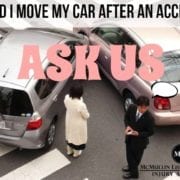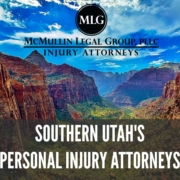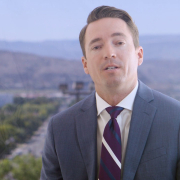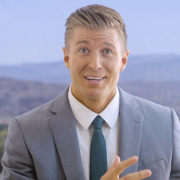4 Ways to Prove Liability in a Utah Personal Injury Case
4 Ways to Prove Liability in a Utah Personal Injury Case
How do we know when someone else is legally responsible for our injury? There are four basic ways ones can prove liability in a Utah personal injury case. Liability means that one person is responsible for something that happens to another. Therefore, the cost of the bodily harm is shifted to the responsible person. There are basically four ways to prove liability and this article will describe each one. The focus will be as the liability applies in personal injury cases in Utah. It should be noted that there are a wide variety of liability theories and causes of actions in other types of cases.
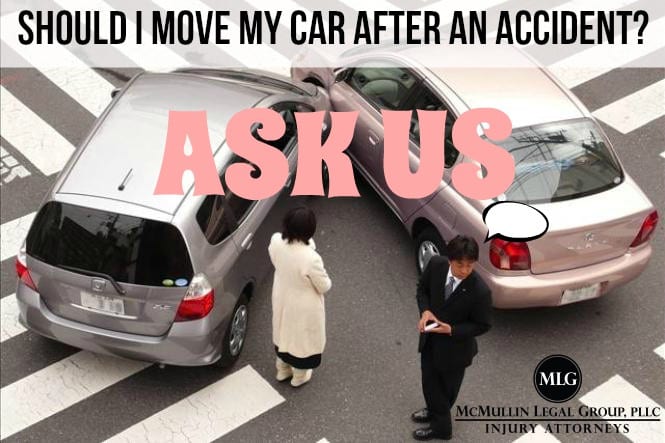
Standard Negligence
This first way to prove liability that we will discuss is proving a case of standard negligence or “prima facie.” According to thefreedictionary.com, in common parlance, the term prima facie is used to describe the apparent nature of something upon initial observation. In legal practice, the term generally is used to describe two things: the presence of sufficient evidence by a civil claimant to support the legal claim (a prima facie case), or a piece of evidence itself (prima facie evidence). There are four elements to standard negligence that must be proven.
Duty
The first element is duty. Duty means that one person owes some type of obligation or duty to another. Generally speaking, people do not have an affirmative duty to act a certain way that they owe to other people.
In order to understand the concept of duty, let’s examine what duty is not. If you happen to witness that someone is about to get hurt, you don’t necessarily have to go save that person thereby putting yourself at risk. For example, if you noticed that a person was about to get hit by a car, though it would be a heroic act to jump out in front of the car and try to push that person out of the way, it is not your duty. Fortunately, many people would do just that anyway. However, the general rule is that people do have a duty to not create foreseeable harm for other people. That is the general duty. You have a duty to keep your sidewalks clear of ice in the winter. You have a duty to stop at stop signs. You have a duty to not drive while under the influence of alcohol or any other substance that would impair your ability to make good decisions or compromise your duty to be an alert, attentive driver.
Breach
The second element of standard negligence is breach. This is when you breach that duty by creating foreseeable harm for another person, then you have met the second element of negligence. In an auto accident case, a breach, for example, could be texting while you are driving. You have a duty when you drive to not create foreseeable harm to others and when you text while you’re are driving, you know, you realize that you are creating a risk for others because you are distracted. If someone happens to be in front of you, you might hit them because you’re are not paying attention and you have breached your duty towards them. People have the right to expect that other drivers will not unreasonably breach their duties. Breach would also apply to a case of someone driving while intoxicated.
Cause
The third element of negligence is causation. Causation can be broken down into two categories, direct causation, and proximate causation. Causation means exactly what it sounds like it means. It’s a legal term that means that you were the cause of something. It means that because of you, something else happened. The events are connected. For example, there might be many direct causes but only one of those actually proximately caused the injuries. Proximate cause is basically tying the injury or the effect to the negligence. It ties those two legal elements together.
Direct cause or cause in fact, as it is also called, is figured out by the but-for test. But for the action, the result would not have happened. For example, but for someone texting while driving, they would not have rear-ended the car in front of them, which caused the passengers injury.
Proximate causation is legal causation. It’s basically a legal limitation to cause and fact. Sometimes there might be several but-fors. As in if one person commits an act that causes an entire chain of events to happen. Meaning that one thing might not have happened had not another thing happened and so on. But proximate cause basically limits that, it cuts it off. It’s got to be that the negligence and the injury are connected closely enough that we can reasonably blame that injury on that negligence. It is not that one person did something negligent one day which led to a series of events that occurred in someone else’s life and eventually resulted in an injury. There is only so far that the law will allow causation to go. A case involving several but-for’s would be if a pedestrian was walking down the street and was suddenly struck by a car and then fell down a manhole. In this situation there would be at least two but for acts involved. But for the car hitting the pedestrian, they would not have been knocked into the manhole. But for the city worker leaving the cover off of the manhole previously, the pedestrian could not have fallen down it when they were struck by the car. In this situation, the city worker and the driver of the automobile are both at fault. Both have liability to the injured pedestrian.
Harm
The fourth element is harm or damages. So that means the resulting injury and the value that is placed on that injury. Damages really get broken down into two categories. Those categories are special damages and general damages. Special damages are something that you have a dollar amount for. So if you incur medical bills, we can add those up and come up with a number and that would be your special damages. General damages are not as cut and dried to figure. We don’t have specific dollar amounts for this type of damage. They are more specific to each individual person. The way those are figured is by considering the way that that particular injury affected that person individually. Maybe they suffered emotionally because of the injury. Maybe they had a relationship that was destroyed because of the injury. They might have had to give up a major hobby that they were involved in and lost some of their enjoyment in life. Each person does not suffer the same amount of damages even if they suffer the same injury. These type of damages that are specific to the individual are general damages. All four elements, duty, breach, cause, and harm, need to be present in order to prove liability by standard negligence in a personal injury case. This is by far the most common theory by which one may prove liability.
Negligence Per Se
The second way to prove liability in a case is called “negligence per se”. Basically, that means negligence due to the violation of a public duty, such as speeding through a school zone or neighborhood. It is a public duty to slow down significantly in both of these settings.
There are really two major elements of negligence per se. The treatment of negligence per se can change a bit based on the jurisdiction, but the general rule is if someone violates a law and the violation of that law results in harm to the very class of people that that law was designed to protect, then that’s negligence per se.
So a classic example of that would be that there is a law that says, “don’t run a red light.” Well, the reason for that law, is that if you run a red light, you might T-bone another car that is passing through on a green light. So if you do run a red light and you hit a vehicle that is passing through the intersection when they have a green light, then you have violated a traffic law and you have now hurt a person that the law was designed to protect. A personal injury attorney will be able show negligence on that case through negligence per se. The need to prove that the at-fault person was careless does not need to be demonstrated because a law was broken. Since the law was broken, the decision now becomes was that violation of the law the proximate cause of the accident and/or injury. In this case, one does not need to prove liability. One can simply show that the Defendant broke the law.
Res Ipsa Loquitur
This is the third way to prove liability in a case, Res Ipsa Loquitur. This a Latin term that means “the thing speaks for itself.” A classic cartoon example of that would be if somebody is walking by on the sidewalk and a couch falls out of an upstairs window of an office building and strikes the person on the head, rendering them unconscious They don’t know what happened and they certainly can’t prove it. They are unconscious. They just don’t know what happened in that room up above that caused the couch to fall out of a window and hit them on the head. They maybe can’t prove duty, breach, cause and harm or what events happened that led to them being hit on the head. However, couches shouldn’t be falling out of windows on innocent passersby. That logic speaks for itself. The basic element is that In order to show liability you need to be able to show that someone had exclusive control over the instrumentality involved. If you know who was in that room messing with that couch then you would be able to make a case of negligence using Res Ipsa Loquitur. It would be pretty clear who was liable for the injuries of the passerby because “the thing speaks for itself” or Res Ipsa Loquitur. In theory, this helps one prove liability in situations where we don’t know much about the conduct of the other person.
Strict Liability
The fourth way to prove negligence and therefore liability is something called strict liability. It’s actually not negligence, it is something a bit different. Strict liability is a way that we are going to hold you accountable for harm to another person regardless of whether you have done any negligent act or not. As you can imagine this is only used in rare circumstances. An example of when strict liability might make sense would be that in Utah we have strict liability when it comes to dog bites. Some states use negligence for dog bites. Essentially what these states follow is something called the “one bite rule.” The first time a dog bites someone, the dog owner is not actually accountable for that because the idea goes that the dog had never bitten anyone before so the dog owner had no reason to suspect that the dog might bite someone so, therefore, they haven’t breached their duty. Their dog had never bit someone before so the owner had no reason to believe that their dog might bite anyone and so they had no reason to take actions to prevent the dog from biting someone. In Utah, we don’t subscribe to that nonsense. If you own a dog and your dog bites someone, in Utah you are strictly liable for the damages caused by your own dog. It will not be hard to prove liability in that case.
Strict liability also generally applies to ultra hazardous materials. For example, say you are in the business of working with dynamite in some capacity or you work in a chemical plant where you are generating extremely toxic and deadly chemicals and poisons. In those type of activities even without showing that the person was careless or negligent in any way and they didn’t breach any standard of care, even if they met their industry guidelines and handled those materials in an appropriate way, if someone is hurt because of those ultra hazardous materials, often times strict liability would apply and the people in charge of those hazardous materials would be legally responsible and liable for the injuries resulting to other people. They could be liable even though they were not careless. Again, sometimes it may be quite simple to prove liability in a Utah dog bite case.
Standard Negligence, Negligence Per Se, Res Ipsa Loquitur and Strict Liability are the four ways to prove liability in a personal injury case in Utah.

